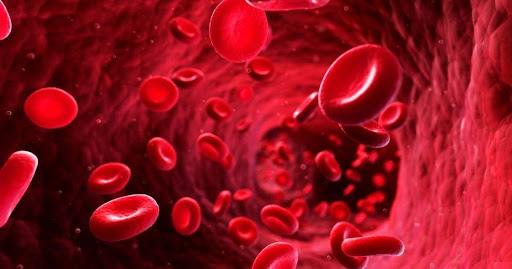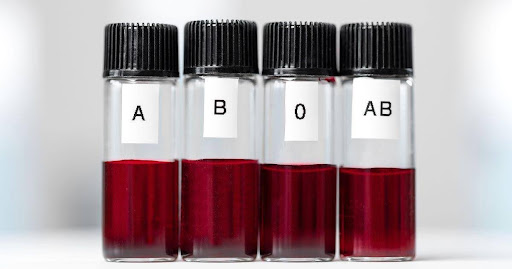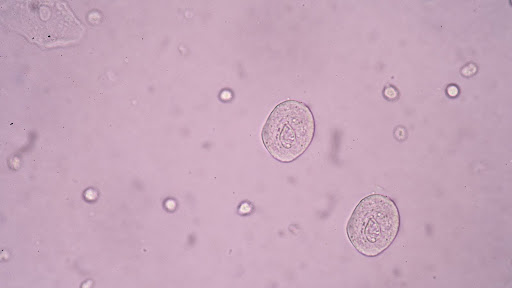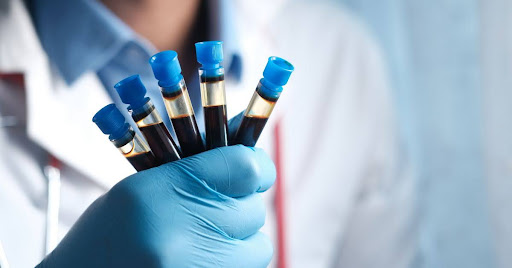Serum Creatinine Test: Purpose, Procedure, and Normal Ranges
6 min read
By DocGenie , Published on - 07 February 2025Ever wonder what blood types are? It's not just a label, it's actually really important. Blood group types are pretty important factors in our health for a number of reasons, from blood transfusions to the explanation of some diseases.
The knowledge of blood groups is essential for many types of medical procedures, such as blood transfusions, organ transplants, and even pregnancy.
Let's deep dive into this world of blood types and discover:
- The basics of blood types
- The ABO and Rh systems
- Importance of blood type compatibility
- Blood types and medical procedures
- Blood group types and telemedicine
What Is a Blood Group?

Blood groups are classified based on whether or not the red blood cells carry specific antigens. The antigens determine your blood group and consequently its usage in transfusion. There are the two major blood group systems which include ABO and Rh systems.
i). The ABO Blood Group System
The ABO system classifies blood into four categories - A, B, AB, and O. Individual types of blood contain certain antigens and antibodies.- Type A: Individuals of this blood group have the A antigen on their red blood cells and anti-B in plasma
- Type B: People with type B blood have B antigens on their red blood cells and anti-A antibodies in their plasma.
- Type AB: Those with type AB blood have A and B antigens on their red blood cells but no antibodies in their plasma.
- Type O: Those with type O blood have neither A or B antigens on their red blood cells but have both anti-A and anti-B antibodies in their plasma.
ii). The Rh Blood Group System
The Rh system classifies blood as positive or negative based on the presence or absence of the Rh factor on red blood cells. If you have the Rh factor you are Rh positive, if not you are Rh negative.Rh incompatibility can be a big problem during pregnancy especially if the mother is Rh negative and the baby is Rh positive. If the mother is Rh negative and the baby is Rh positive, the mother’s body will produce antibodies against the Rh factor which can cross the placenta and attack the baby’s red blood cells. This is called Hemolytic disease of the newborn (HDN). But preventative measures like RhoGAM injections can prevent HDN.
So to summarise, if a person has both A antigen and Rh antigen, they will have an A positive blood group
Types of Blood Types

Blood types have been grouped into various types in view of the presence or absence of specific antigens, which are proteins present on the outer surface of red blood cells. The two important antigens are A and B, while Rh is another significant factor. This combination produces eight common blood types: A+, A-, B+, B-, AB+, AB-, O + and O -. It is also essential to understand blood types since in transfusions, one may receive the wrong type of blood which causes even greater medical complications.
The rarest blood group in the world is said to be AB-, with only around 1% of the world’s population having this blood type.
Blood Group Chart
You can use the chart below to reference the different blood groups.
| Blood Type | Gives | Receives |
|---|---|---|
| A+ | A+, AB+ | A+, A-, O+, O- |
| O+ | O+, A+, B+, AB+ | O+, O- |
| B+ | B+, AB+ | B+, B-, O+, O- |
| AB+ | AB+ | Everyone |
| A- | A+, A-, AB+, AB- | A-, O- |
| O- | Everyone | O- |
| B- | B+, B-, AB+, AB- | B-, O- |
| AB- | AB+, AB- | AB-, A-, B-, O- |
Blood Types and Medical Procedures
Suggested Alt Text: understand blood transfusions
Understanding your blood type is important for many different medical procedures. These include:
i). Blood Transfusions
Blood compatibility is important for safe transfusions. Type O- individuals are the universal donors, and they can provide blood to anyone; on the contrary, type AB+ is known as a universal recipient because it can receive blood from all types. Knowing the blood types assures that donated blood is well matched in order to not trigger any harmful reactions.
ii). Organ Transplants
Understanding blood types and their compatibility is essential in organ transplants to ensure compatibility between a donor and a recipient. Blood antigens, or inherited proteins present on the red blood cells, play a role in determining whether an organ will be accepted or rejected. A mismatch in blood group type between the recipient and the donor will cause rejection, which is a severe complication due to an over reaction of the immune system against the transplanted organ. So blood types need to be matched very carefully for an organ transplant to ensure the success of the procedure.
iii). Blood Donation
Blood donation plays an essential role in health care as a source of steady supply for transfusions and other medical needs. It is also very important to know information about blood types for both donors and receivers. The potential donors should meet certain health criteria, and their blood type should be compatible for them to be considered. The blood banks keep inventory of various blood group types under close observation due to vast differences in the needs of patients and so they can ensure the right blood type is available when needed.
iv). Pregnancy
Rh incompatibility can be a risky condition to the foetus if the mother is Rh-negative while carrying an Rh-positive baby. Pregnant women who are Rh negative require frequent testing for Rh sensitivity because, when one's immune system produces antibodies for Rh-positive blood cells carried by the foetus, Rh sensitivity occurs. With this, appropriate treatments can be given if Rh sensitization happens, to avoid complications in the pregnancy.
Also Read: Things You Need To Consider While Planning For Pregnancy
Blood Types and Telemedicine
Telemedicine platforms can help in managing and monitoring blood type-related problems. These include:
- Providing blood type information
- Addressing concerns about blood group types and related medical procedures
- Monitoring pregnancies where the mother is Rh-negative and baby is Rh-positive
- Helping with blood donations
DocGenie makes it simple and easy to talk to a doctor. Our doctors at DocGenie are dedicated to providing kind and effective care. With a video call, you can connect with a doctor without leaving your home. DocGenie lets you get quality healthcare from anywhere, in a cost-effective way.
In conclusion, blood types are an important part of human health since they tend to influence a lot about general and even medical procedures - including even the outcome of some health issues. Ultimately, blood types can prove pretty important for patients as well as for healthcare professionals. Knowing your blood type, along with its implications, can help you make informed decisions about your own health and the health of those around you.



